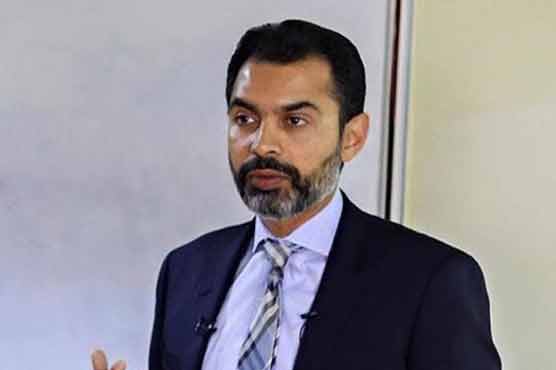Karachi
Governor State Bank of Pakistan (SBP) Dr. Reza Baqir on Wednesday said digital transformation of the global Islamic financial services industry had become a necessity for its growth and needed to focus on innovative ways of service delivery that aligns with expectations of today’s tech-savvy and convenience-driven customers.
He stated this while addressing the 15th Islamic Finance Services Board (IFSB) Summit 2021 hosted by the Saudi Central Bank in Jeddah, said a news release here on Wednesday.
The theme of the summit was “Islamic Finance and Digital Transformation: Balancing Innovation and Resilience.”
Dr. Reza Baqir, who is also the Deputy Chairman of the Council of IFSB, was chairing a session on ‘Digital Transformation of Islamic Financial Services: Opportunities, Challenges and Policy Implications’.
Other attendees at the summit included the central bank Governors of Saudi Arabia, UAE, Bahrain, Indonesia, Oman, and Libya.
With fast digitalization happening in the financial landscape, Governor SBP emphasized that the Islamic finance industry also needed to move to digitize their financial services and transform their processes to improve efficiency, reduce intermediation cost and increase outreach to a wider segments of society.
He pointed out that digitalization of Islamic financial services offered tremendous opportunities in achieving a more inclusive financial system for Islamic countries, where a significantly large number of adult population was unbanked than rest of the world.
He advised that development of Shariah and prudential standards related to fintechs and digital banking, by the international standards setting bodies such as AAOIFI and IFSB, would prove pivotal for the fast-paced development of global Islamic financial industry and recommended to set up a technical working group to specifically work on these standards.
Governor SBP touched upon the key initiatives taken by State Bank of Pakistan during the last few years on the digital front, especially in the wake of COVID-19 pandemic.
He especially mentioned SBP’s initiatives pertaining to National Payment Systems Strategy, digital onboarding framework to bring banking services to the fingertips of the customers, digital on-boarding of merchants to facilitate the growth of digital payments and Roshan Digital Accounts for providing innovative banking solutions to millions of Non Resident Pakistanis (NRPs).
Other panelists of the session discussed how the digital transformations could benefit and bring significant opportunities for the Islamic finance industry allowing greater accessibility, convenience, speedy payment transactions and operational efficiency.
The panelists also shed light on new regulatory and supervisory challenges for the financial sector regulators posed by technological advancements.
Further, they discussed policy implications of digitalization that focused on maintaining a balance among financial innovation, integrity and stability.
The 15th IFSB Summit 2021 focused on ways to foster innovation, technological adoption, accessibility and sustainability in the Islamic financial system to aid its future growth and development.
It also highlighted policy implications arising from rapid digital transformation and the work to be done, going forward, to strengthen its resilience and stability.
The summit convened together high-level participants from regulatory and supervisory authorities, government officials, commercial institutions offering Islamic financial services, international organizations, multilateral development banks, academics and think tanks.—APP










